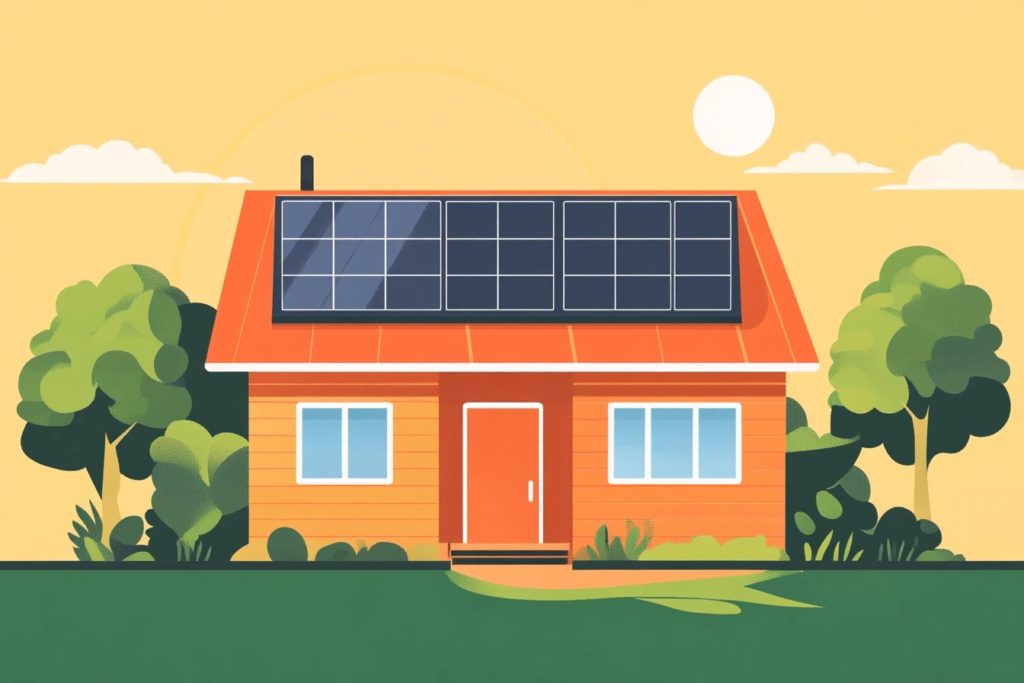
Over the last ten years, we’ve seen the hot trend of Do-It-Yourself home improvements, promoted by plenty of reality TV shows. And while we’re all tempted to roll up our sleeves and become DIYers around the house, there are some occasions when it doesn’t save you money. In fact, when it comes to DIY solar installation, you’ll not only squander a whole lot of your valuable time, but will end up spending far more, will probably do damage to your roof or home, and can even put yourself in danger.
You may even see advertisements for DIY solar panel installation kits or systems, but once you make that purchase, you’ll find yourself way over your head and with no place to turn. Going solar at home is far more complex and involved than just jumping up on your roof and attaching the panels, and there’s good reason why the DIY solar option is more fantasy than reality.
In this series of articles, we’ll cover the four reasons why DIY home solar panel installation is a bad idea, including:
- Paperwork, permits, and regulations
- The cost
- Potential damage to your roof and your home
- DIY danger!
Today, let’s look at #1: the paperwork, permits, and regulations that make DIY solar installation unrealistic.
Solar Installation Paperwork
The paperwork necessary to initiate, install, and finalize your solar installation adds up to scores of pages quickly and can even measure up to the stack of documents necessary when you sign a home loan!
If you try to go the DIY solar panel installation route, the burden of finding, organizing, and submitting all of that paperwork will fall on YOU, the homeowner.
To mention a few, you’ll first probably have to file for a permit with your local building and planning department. Typically, they’ll want to see a detailed site plan that outlines the specs of the solar install. But that also includes an electrical diagram, including the calculations showing that the new solar system is compatible with the home’s existing power grid, as well as safe.
If that doesn’t make you throw up your hands and call LGCY Power instead of going the DIY route, you’ll also need to submit plans and specifications to your local utility provider to get their permission to even connect your proposed home solar system to their power grid.
Even if you get through that arduous and very detailed process, most building departments will only issue permits if you can show that professional contractors with specific certifications or licensing are doing the work. And there are no easy exceptions for DIY solar installation! When it comes to electrical, solar, and power systems in your home, the licensing requirements are in place to protect you, the homeowner.
The river of paperwork flows on when it comes to the rebates, incentives, and tax credits that may be available when you transition to solar. Part of the reason why solar power is so cost-efficient is the availability of various rebates and incentives, which may be offered on a state, local, or federal level. Of course, those incentives come only after filling out the necessary paperwork and going through the stringent application process.
Solar Tax Rebates
The same is true of tax rebates that may be available from your state and also federal taxes with the Internal Revenue Service, including the highly valued Federal Solar Investment Tax Credit.
Want to access a financially lucrative grant such as the USDA REAP Grant or take advantage of solar renewable energy credits (SRECs)?
Unless you know what’s available and have vast experience accessing grants, tax credits, and other incentives, I can almost guarantee that you’ll leave a lot of money on the table when trying to DIY your solar panels.
Even if you could find a way to navigate that huge paperwork process, there’s another profound reason why you don’t want to try DIY solar installation: the warranty.
When you coordinate your solar with a company like LGCY Power, there may be warranties and guarantees available on the equipment, production, and installation, safeguarding your investment.
However, DIYers will surely lose out on those warranties, as well as all of the other benefits and financial incentives!
So, if you’re ready to get serious about saving with solar at home and making sure you do it right, contact LGCY Power today!




